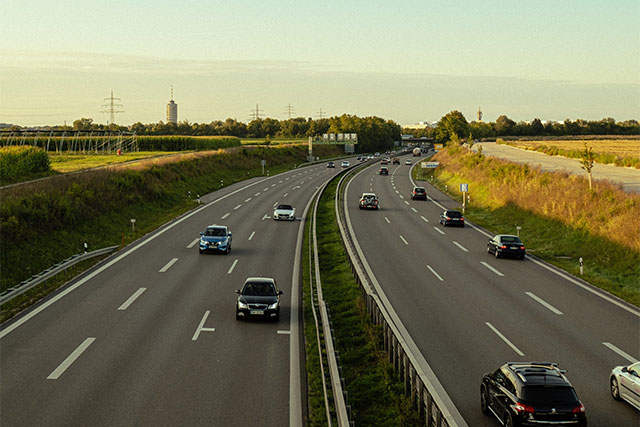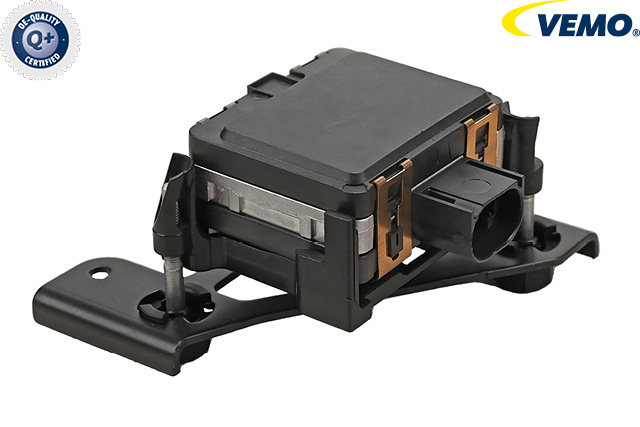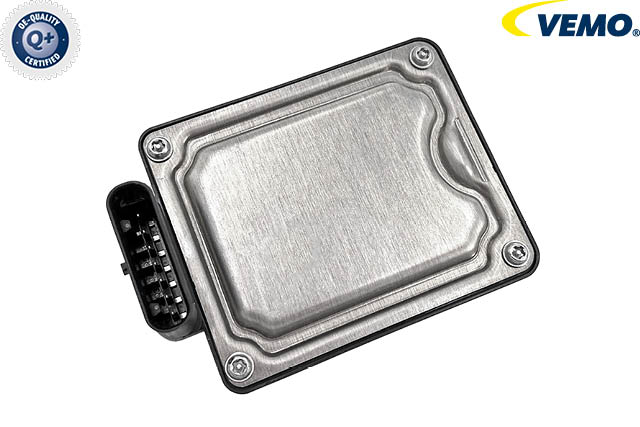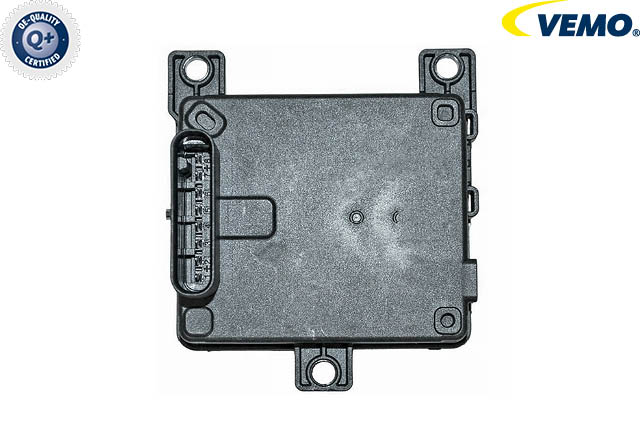Distance measurement with radar sensors
High-quality sensors from VEMO
The modern automotive industry is characterised by constant innovation and driver assistance systems are playing an increasingly important role in improving safety and comfort on our roads. One pioneering system is Adaptive Cruise Control (ACC), which is not only an advanced technology but also an important step towards autonomous driving.
How Adaptive Cruise Control works
Adaptive Cruise Control (ACC) is a driver assistance system based on the conventional cruise control principle. In contrast to conventional cruise control, however, ACC is able to automatically adapt the speed of the vehicle to the traffic situation. To do this, sensors measure the distance to other vehicles and regulate the speed accordingly.
The core components of ACC are radar and lidar sensors mounted on the front of the vehicle. These sensors continuously scan the surroundings and measure the distance and relative speed to other vehicles. Based on this data, the system can adjust the speed of the vehicle to ensure a safe distance.

Advantages of Adaptive Cruise Control
- Safety: ACC helps to prevent rear-end collisions by automatically reducing speed when the vehicle in front slows down.
- Comfort: Drivers can relax on longer journeys as the system automatically controls and adjusts the speed.
- Efficiency: By adapting the speed to the traffic, ACC can help to optimise fuel consumption.
Causes of Adaptive Cruise Control failure
The failure of adaptive cruise control (ACC) can have various causes and impair the function of the system. One of the most common causes is front-end damage caused by an accident. Even seemingly minor parking bumps can damage the sensitive radar sensors that are crucial for the ACC system. This damage can result in the system no longer functioning correctly or providing incorrect information about distance measurement.
Symptoms and consequences of a defective adaptive cruise control system
A defective Adaptive Cruise Control (ACC) system can be recognised by various symptoms that not only affect the functionality of the ACC itself, but can also impair safety-relevant aspects. One of the most obvious signs is an error message in the vehicle display, which indicates that the assistance system is no longer functional.
To ensure safety on the road, it is therefore important to pay attention to possible symptoms of a faulty ACC system and consider having it repaired immediately.

Radar sensors for distance measurement from VEMO
VEMO offers an excellent selection of high-quality radar sensors for precise distance measurement that are compatible with a wide range of vehicle models. VEMO sensors are characterised by their original equipment (OE) quality and guarantee 100% accuracy of fit. This reliability is not only a promise, but is also emphasised by the exclusivity in TecDoc.
“With our state-of-the-art radar sensors, we offer maximum safety on the road. The sensor technology enables the speed to be intelligently adapted to the traffic situation so that drivers can enjoy a relaxed and comfortable journey.” Jens Reimers, Product Manager at VEMO
Customers can rely on the quality and performance of VEMO’s radar sensors to make their journey even safer and more enjoyable.











